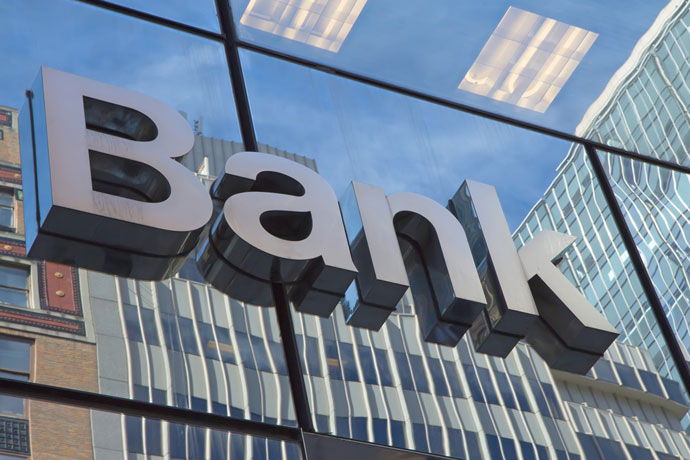13 Of The Absolute Worst Bank Fees That You Should Avoid
It’s universally agreed upon by everyone other than banks that banking fees are just the worst. But have you ever realized how many banking fees there really are? Not surprisingly, there are a lot; here are 13 of the absolute worst ones. Rest assured, there are many more (less common) types of fees out there waiting for you. You have a lifetime of bank fees to look forward to. However, if you do savvy things like reading this list and staying aware of what your bank charges, you might be able to avoid some of the following common fees.
1. Fees for Using Other Banks’ ATMs
The average fee for using an out-of-network ATM is now $4.35, according to USA Today; that’s a lot of money just to use a machine that doesn’t belong to your bank.
2. Overdraft Fees
By September 2014, overdraft fees in the U.S. had risen to an average of $32.74, says USA Today. Banks that charge overdraft fees can be the most frustrating, because not only do you have to panic about owing more money than you have in your account, you also end up owing even more once the bank has levied its overdraft fee. If you forget that overdraft fees exist and don’t deposit enough money into your account to cover the overdraft and the fee, you could end up getting hit with another fee the next time you try to withdraw money. You could also fall into the trap of transferring or depositing money into your account but not having it processed in time to avoid overdraft fees. In short, they are the worst.
3. Overdraft Protection Fees
A study from the Consumer Financial Protection Bureau revealed that 61 percent of large banks’ checking account fee revenue came from overdraft protection programs. That’s a lot of revenue. Overdraft protection sounds great, except you have to pay a fee every time you use the service, and many people just assume that if they don’t have enough money in their account to cover a purchase, their credit card will be declined. In reality, the card will usually be accepted and the overdraft protection will kick in.
4. Monthly Maintenance Fees
Many charge a monthly fee unless you maintain a certain minimum balance. This is basically just a slow cash drain that can only be combated if you never spend all of the money that is available to you in your account. These types of fees usually range from around $12 on a basic Bank of America checking account to $30 for a Citigold checking account.
5. Balance Inquiry Fees
If you use an ATM to check your debit card balance or, in some cases, even call customer service to ask about this balance, you could be charged a fee. These types of fees aren’t very large — they usually average around $2 — but most people aren’t aware of these kinds of fees, leading to a lot of frustration and unwanted payments.
6. Stop Payment Fees
So you’d like to stop payment on a check because you found out that the business you sent the check to is untrustworthy or has ripped you off in some way. That’s ironic, because Bank of America will charge you $30 to stop payment on that check. You can avoid this fee by having a Bank of America Advantage with Tiered Interest checking account or being a Platinum Privileges/Preferred Rewards customer. The Advantage account with Tiered Interest requires customers to pay a monthly maintenance fee of $25 or, if they’d like to waive that fee, maintain a minimum combined balance of $10,000.
7. Debit Card Fees
Bank of America charges $5 for a replacement debit card; if you need a card quickly, it’ll cost you $15. In addition, if you for some reason have to use your debit card to withdraw crash from another bank’s teller, it’ll cost you $5.
8. Early Account Closure Fees
According to the U.S. News & World Report, BB&T and Citibank charge a $25 fee if your account is closed within 90 days of opening it, while U.S. Bank, HSBC and PNC Bank charge $25 to close an account that has been open for less than 180 days.
9. Foreign Transaction Fees
Banks usually charge a fee for converting foreign transactions into U.S. dollars, so when you purchase something abroad, you won’t just be paying the sticker price; you’ll also be paying an extra fee. The same goes for withdrawing money from a foreign ATM.
10. Returned Deposit Fee
This is a classier way of saying “bounced check fee.” If you deposit a check in your account and it bounces, you might end up having to pay a fee, which will probably make you even less happy after discovering that you’ve deposited a bounced check.
11. Retirement Account Fees
Many banks charge a maintenance fee on IRAs; however, this can often be avoided by going paperless. Still, it can be a bit of a shock to get a retirement statement and see that money is being siphoned out of your account — especially considering the fact that most people don’t check their retirement accounts on a monthly basis.
12. Fees For Paper Statements
It costs money to print and mail paper statements, so banks try to encourage customers to go paperless by charging small fees for those who continue to get their statements delivered by mail.
13. Rewards Points Fees
Although this fee is less common, it’s one of the worst, as it lures customers into thinking they’re getting rewards and then slamming them with a fee. For example, anyone buying airline tickets with their Wells Fargo rewards points will be charged a $24 processing fee. What a fun reward!










































